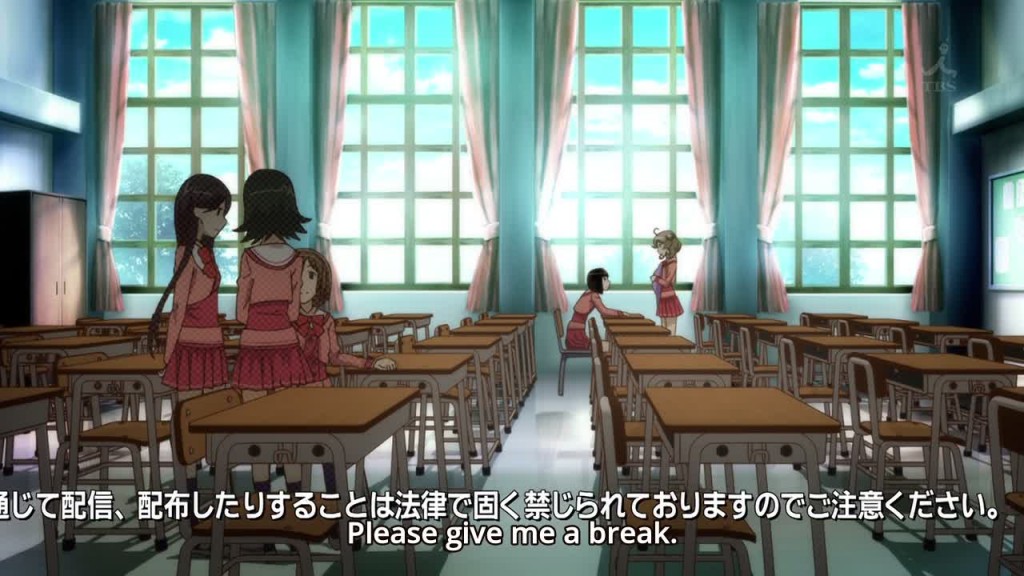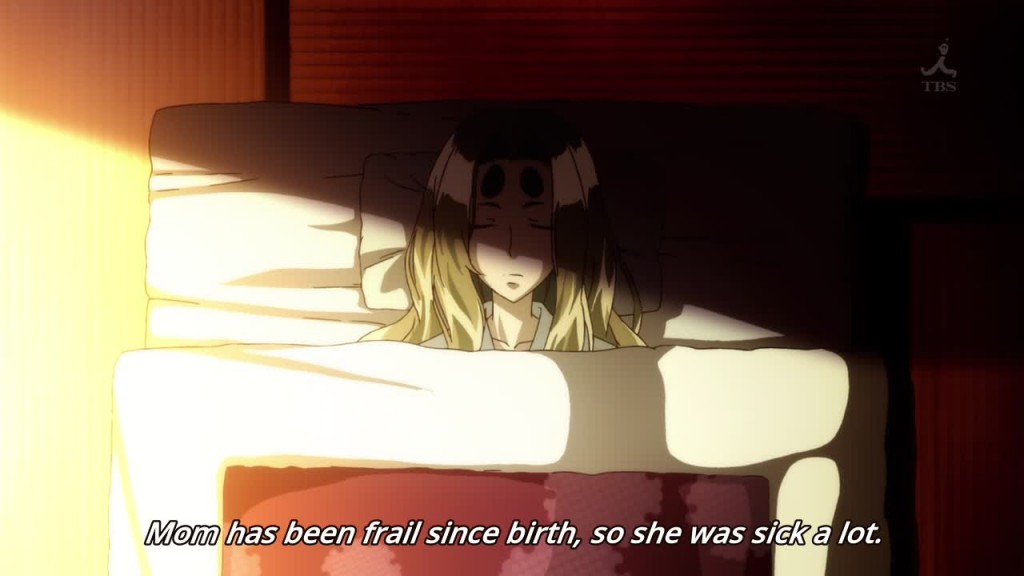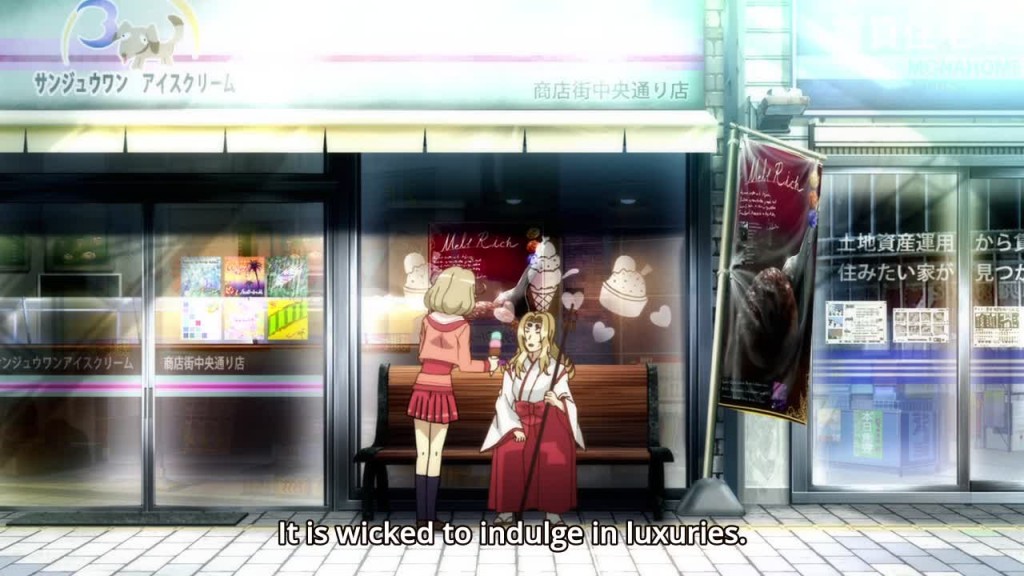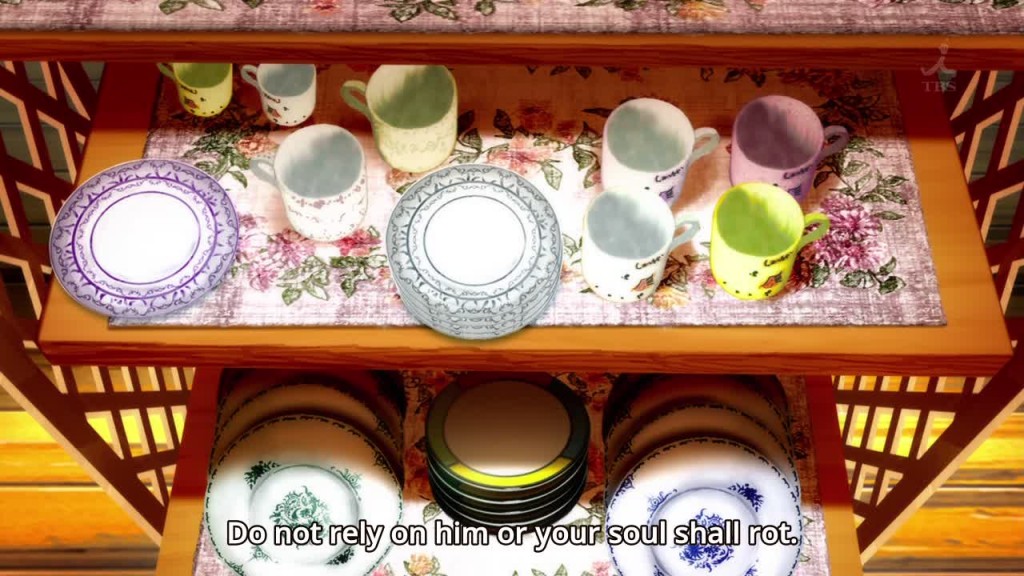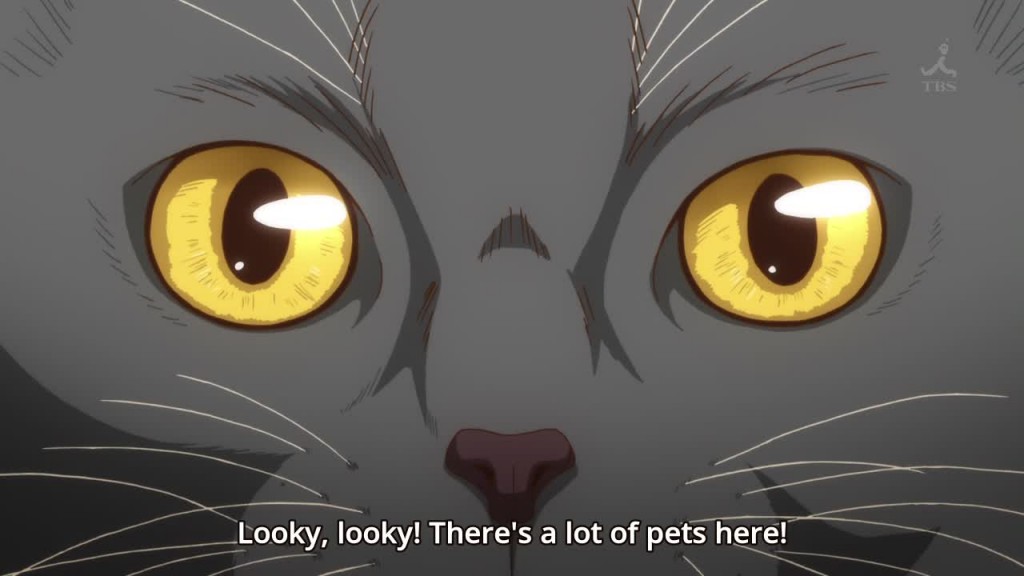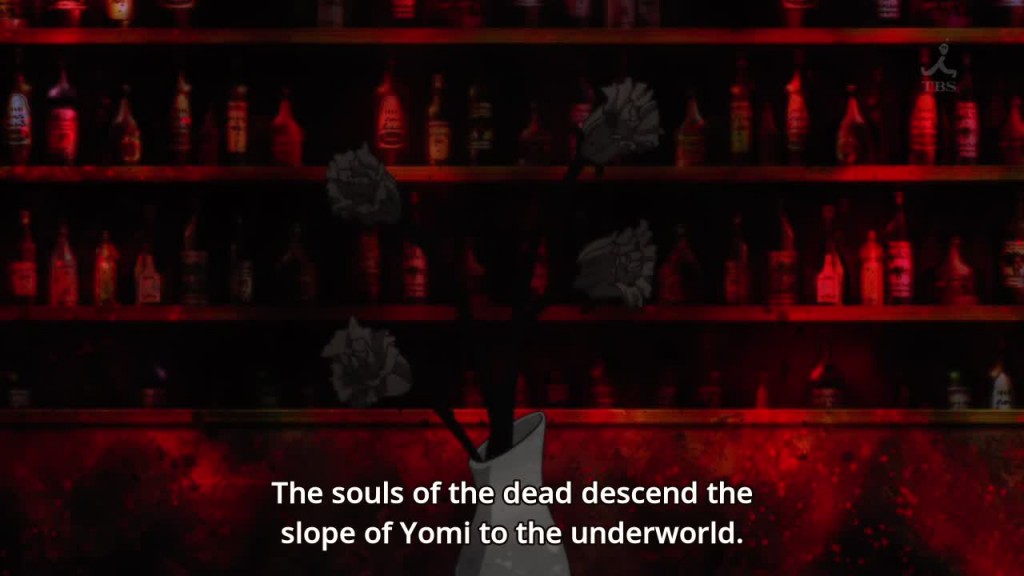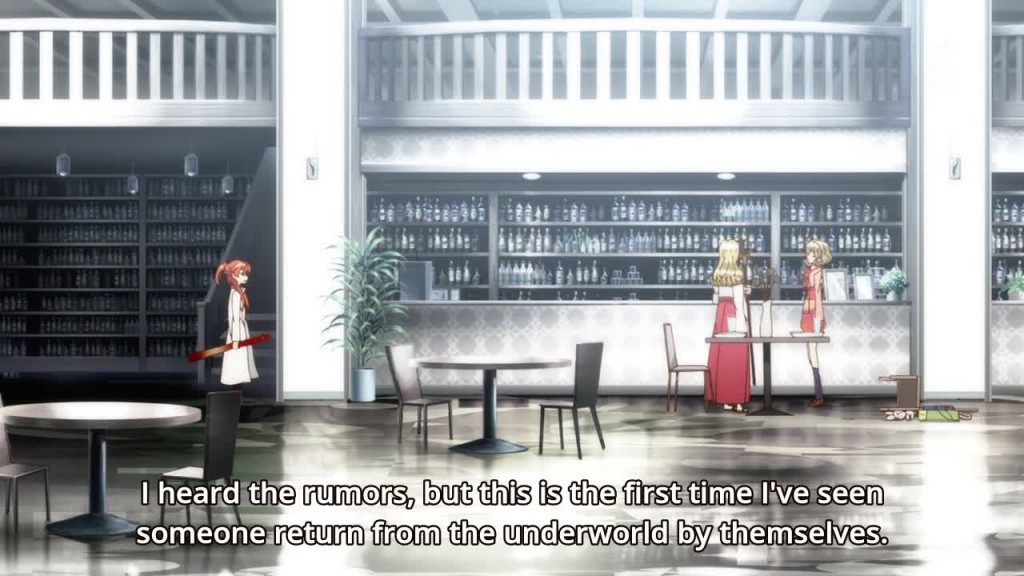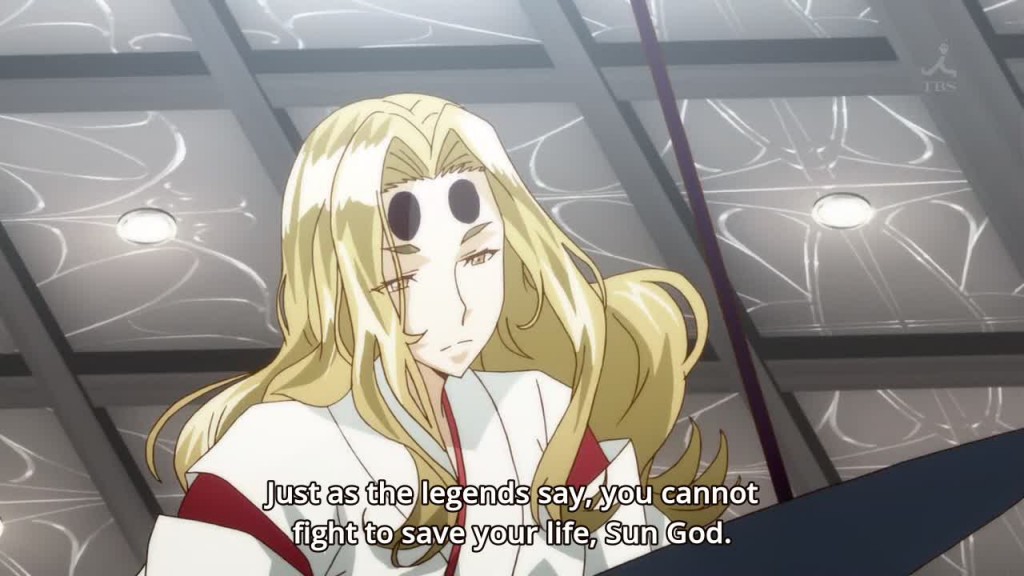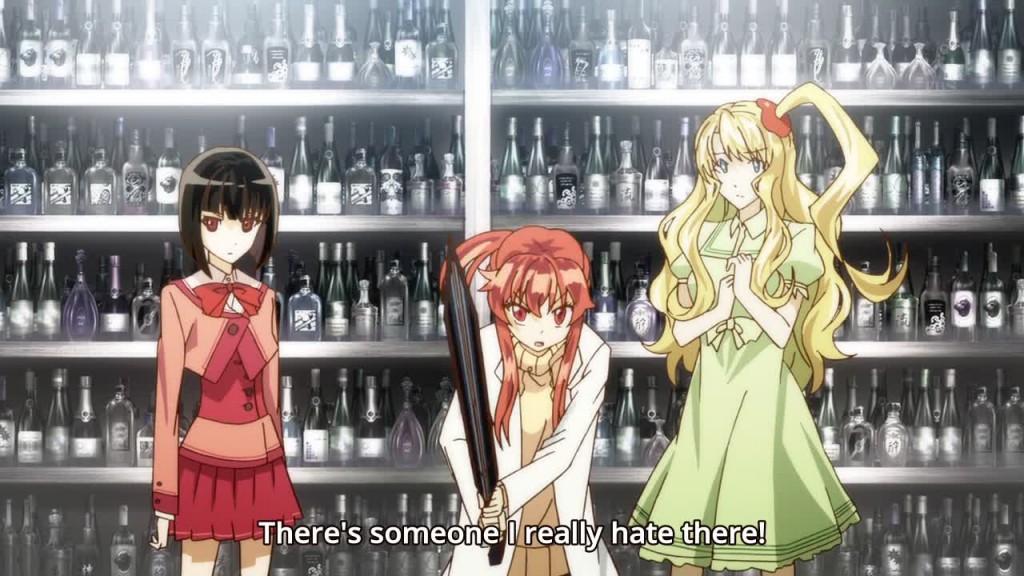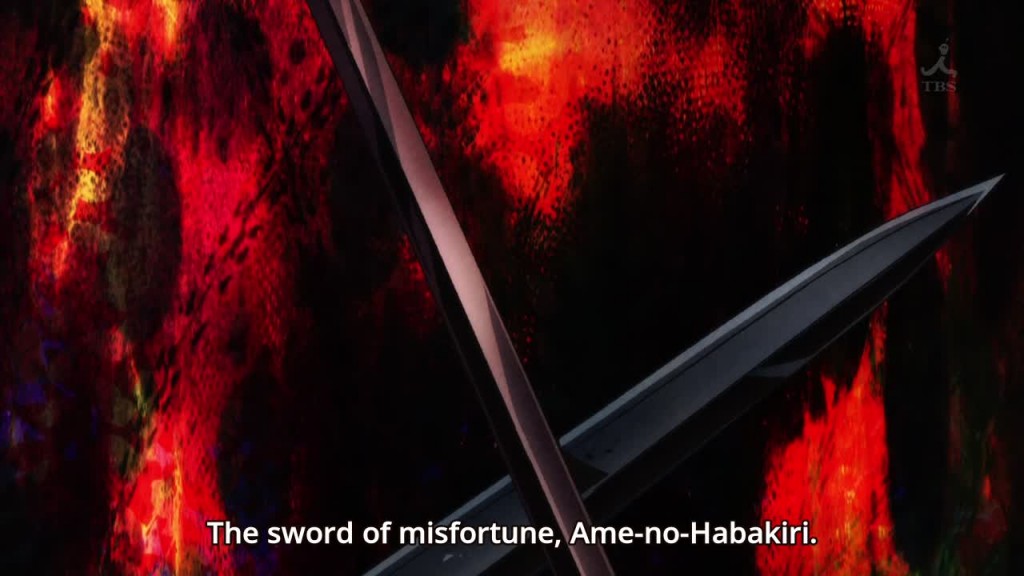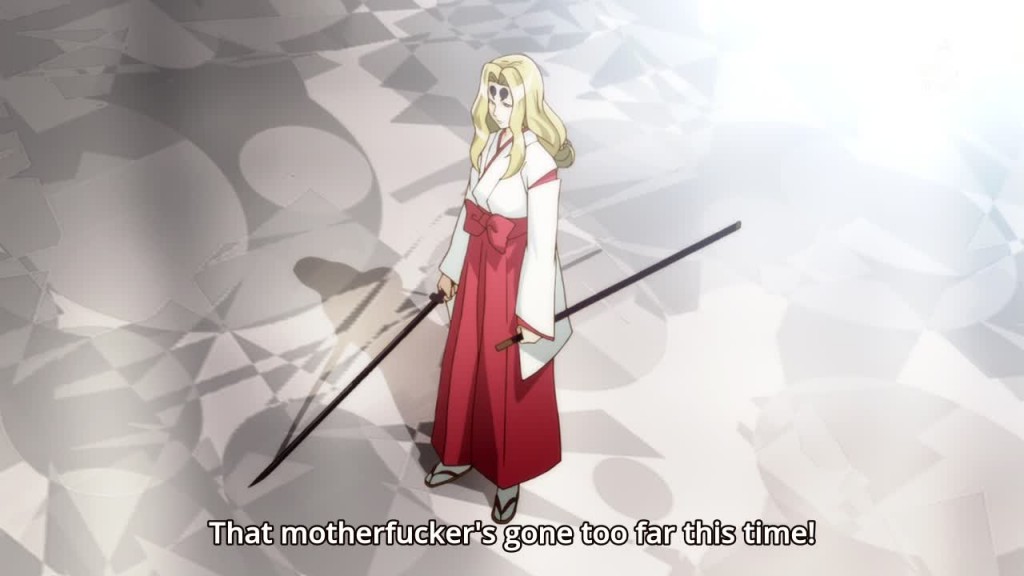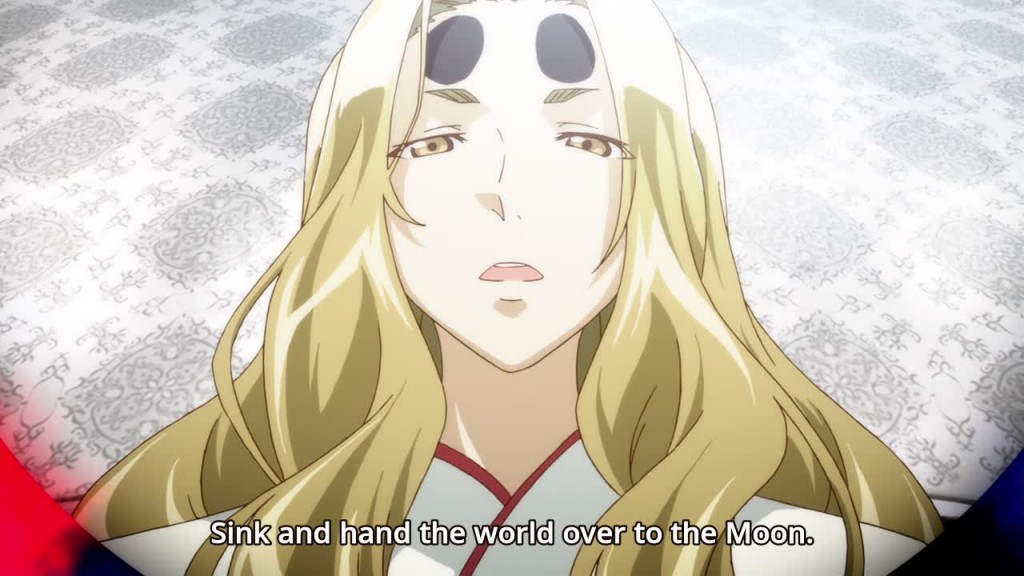Sasami-san@Ganbaranai 06 – notes and the like This entry was posted by Vale.
So as probably most of you noticed, after doing episode 4, I ended up translating every episode of Sasami past the sixth. I’ll just go over all the episodes I did.
The phrase she uses means roughly “that’s enough idiocy for today” while it literally translates into “say idiocy with breaks”. That’s why Sasami says the sentence again – with breaks.
Happens when you keep the bloodline going by incest for over a millenia.
She keeps calling everything “wicked” (邪 yokoshima). This character is associated with pretty much everything that’s wrong. Later she calls the Yagami sisters “wicked gods” (邪神 jashin) too. That one’s especially funny considering how Yagami is really just another reading for 邪神.
She refers to Sasami’s brother as “that” (あれ), not as a person.
Tama speaks very childish. She usually ends her sentences with お (o) which is intended to emphasize her childishness.
黄泉比良坂 (yomo-tsu-hirasaka) is the slope to the underworld (Yomi). 根の国 (ne-no-kuni) literally means “country of roots”, and is another name for the underworld. It’s pretty much a synonym of Yomi. As shown in the story of Izanami in the Kojiki, once someone descends to Yomi and eats the food of the underworld, they can never return again – not even gods. Izanagi went to take Izanami back from Yomi, but she already ate the food and rotted. Izanami was so furious that Izanagi saw her like that, that she started chasing him. Izanagi ran, and blocked the entrance of the underworld with a huge boulder (called the 道返の大神 chigaeshi-no-ookami among other names). Izanami became the head god of the underworld after that (黄泉津大神).
Please note that the kanji used in the Kojiki are sometimes used for their meaning and sometimes just for the sound. That’s why it’s not easy to figure out at times what a name originally meant.
The word for “revive” itself (蘇る yomigaeru), if you look at how it’s pronounced, literally means “return from Yomi”.
As she says, Amaterasu is a peaceful god and isn’t good at fighting.
She’s referring to Susanoo, her brother, the storm god. More on this later.
Tsurugi’s sword (haha, her name means “sword” as well) is the Ame-no-Murakumo (天叢雲), also known as Kusanagi (草薙, grasscutter) was the sword that Susanoo found in Yamata-no-Orochi’s tail, and presented to his sister Amaterasu to reconcile her. The Yagami sisters represent the three divine treasures of Japan, the sword (Tsurugi), the mirror (Kagami) and the jewel (Tama). On the other hand, the sword Juju carries is the Ame-no-Habakiri (天羽々斬), the sword Susanoo used to kill the drunk Orochi (the name itself means “heavenly snake-slayer”).
Now here we go. Please take “motherfucker” quite literally – she calls Susanoo a “mother complex bastard”. Apparently Susanoo became the ruler of the underworld – though to be honest I can’t find any reliable sources supporting this. He sure longed for his “mother” and wanted to go after her to Yomi.
I keep putting “mother” in quotes, because Izanami was not the mother of the three great gods, Amaterasu, Tsukuyomi and Susanoo. They were born when Izanagi returned from the underworld and washed his face of its filth. Amaterasu was born when he washed his left eye, Tsukuyomi from his right eye, and Susanoo from his nose. Thus, Izanami had nothing to do with them other than being the deceased wife of their father.
I read somewhere that Susanoo’s character is so full of contradictions in the myths because he was the main god of the Izumo people, rivals of the Yamato, whose main god was (according to this source) Amaterasu. His rampaging, wild and dangerous elements originate from how the Yamato people saw him, and his heroic savior elements originate from the Izumo.
Both his husband in episode 4 and she herself now claim that they represent the Moon. That makes sense in a way considering that Tsukuyomi (name of their shrine) was the god of the Moon. He killed another god, and for that act Amaterasu got so angry at him that she refuses to face him (thus the Sun and the Moon are very rarely seen together).
